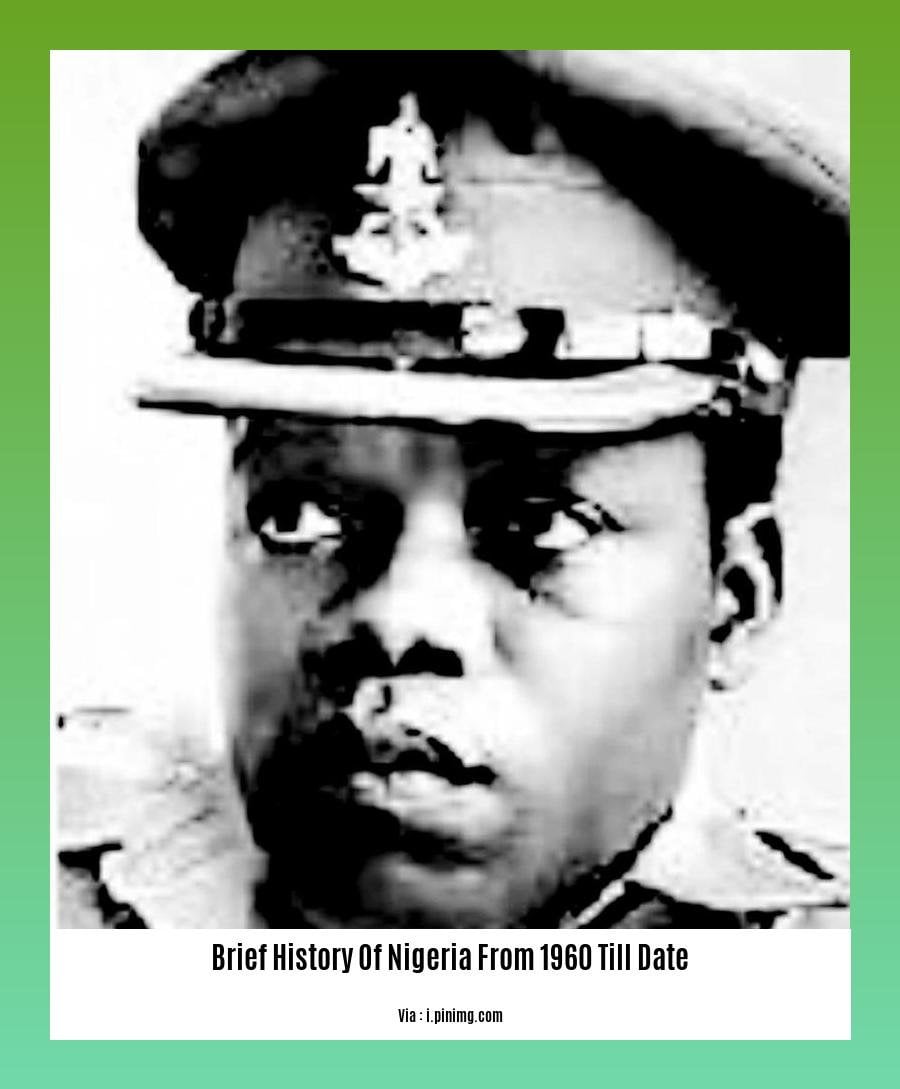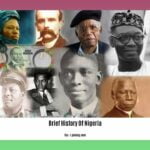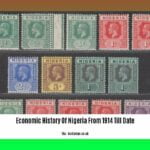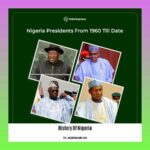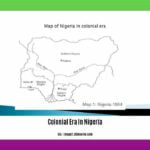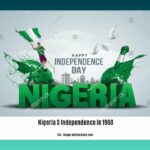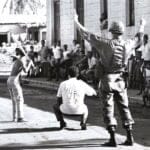Embark on a captivating journey through time as we delve into the annals of Nigeria’s history from 1960 to the present day. A land brimming with diverse cultures and abundant resources, Nigeria emerged from British colonial rule in 1960 with high hopes for a prosperous and unified nation. Yet, the road ahead was fraught with challenges, from the tumultuous years of the First Republic to the relative stability of the Fourth Republic. Join us as we trace the triumphs and trials of this vibrant nation, exploring the leadership of iconic figures like President Shagari, the military regimes of Buhari and Babangida, and the complexities of a country navigating the tides of independence, economic growth, and political transformation.
Key Takeaways:
Nigeria gained independence from British rule on October 1, 1960, marking a pivotal moment in its history.
The First Republic faced political challenges, leading to a military coup in 1966 that ended civilian rule.
The Biafran War, also known as the Nigerian Civil War, occurred from 1967 to 1970 due to the secession attempt of the Eastern Region.
The 1970s witnessed an economic boom driven by oil discovery and exploitation, bringing both prosperity and challenges.
In 1999, Nigeria returned to civilian rule after decades of military regimes, marking a significant transition in the country’s political landscape.
A Brief History of Nigeria from 1960 till Date
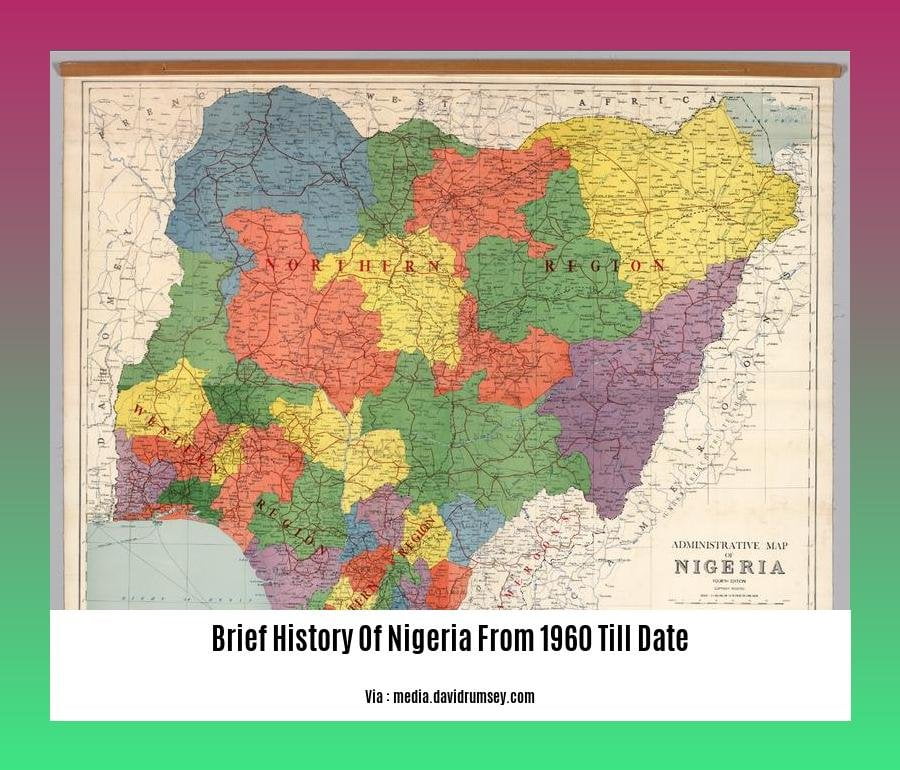
A Dawn of Independence (1960-1966)
Nigeria’s journey as an independent nation began on October 1, 1960, when it unfurled its flag, declaring freedom from British rule. This momentous occasion ushered in a period of hope and aspiration as the country embarked on self-governance.
The Shadows of Instability (1966-1970)
The First Republic, however, was short-lived. Political tensions and ethnic divisions escalated, leading to a military coup in 1966 that toppled the civilian government. This marked the beginning of a turbulent period marked by a series of military regimes.
The Nigerian Civil War: A Nation Divided (1967-1970)
In 1967, the Eastern Region of Nigeria declared secession, igniting the Biafran War, a brutal civil conflict that lasted three years. The war left deep scars on the nation’s fabric, claiming countless lives and leaving a legacy of division that lingers to this day.
Oil Boom and Economic Transformation (1970s-1980s)
The discovery of oil in the 1970s brought a wave of economic prosperity to Nigeria. The country’s coffers swelled with petrodollars, leading to ambitious development projects and a rise in living standards. However, this period was also marked by corruption and mismanagement, leading to growing inequality and social unrest.
Return to Democracy and the Challenges Ahead (1999-Present)
In 1999, Nigeria’s long military rule ended with the election of President Olusegun Obasanjo, ushering in a new era of democracy. Since then, the country has held regular elections, making steady progress in consolidating its democratic institutions. However, Nigeria continues to face significant challenges, including corruption, poverty, insecurity, and ethnic tensions.
Despite these challenges, Nigeria has made remarkable strides in the six decades since independence. It is now Africa’s largest economy and a major player on the global stage. Its vibrant culture, rich history, and resilient people continue to inspire hope for a brighter future.
For a comprehensive overview of the city’s rich heritage and development, explore the brief history of Venice.
Dive into the captivating story of the brief history of Venice, Italy, a city built on 118 small islands in a lagoon in the Adriatic Sea.
Discover the fascinating tale of the California Angels hat history, a symbol of baseball’s golden age and the team’s enduring legacy.
**Buhari (1983-1985) and Babangida (1985-1992), two unequal dictators[edit]**
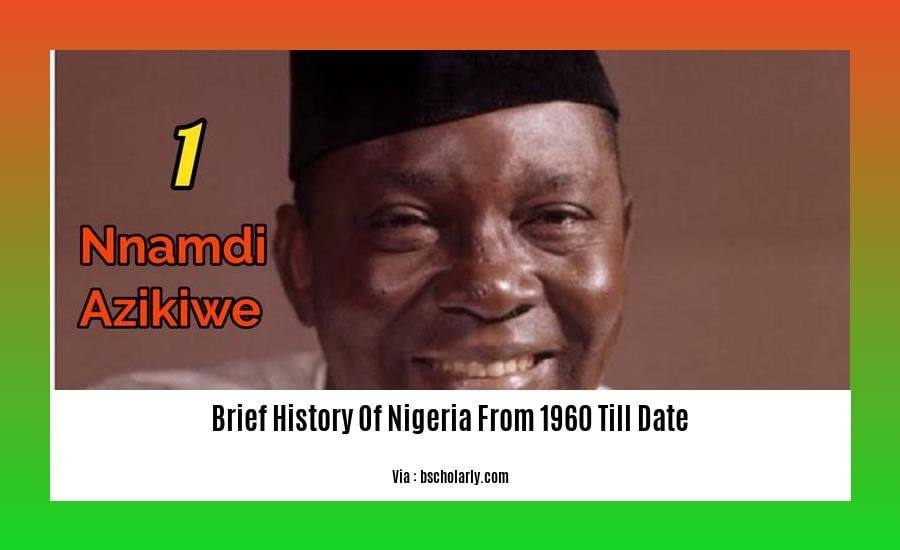
In the annals of Nigeria’s history, the military regimes of Buhari (1983-1985) and Babangida (1985-1992) stand as a stark reminder of the country’s tumultuous journey towards democracy. While both leaders shared the mantle of dictatorship, their approaches and legacies were vastly different, shaping Nigeria’s political landscape in distinct ways.
**The Iron-Fisted General: Buhari’s Brief Rule**
Major General Muhammadu Buhari’s seizure of power in 1983 was met with mixed reactions. Some welcomed his promise to combat corruption and restore order to the country, while others feared his authoritarian tendencies.
- Buhari’s regime swiftly implemented a series of strict measures, including a crackdown on dissent, restrictions on the press, and the detention of political opponents.
- His War Against Indiscipline (WAI) campaign aimed to instill discipline and moral rectitude in Nigerian society, but its methods were often harsh and arbitrary.
- Despite his efforts, Buhari’s government struggled to address the country’s deep-seated economic problems, and his popularity waned as living conditions worsened.
- In August 1985, Buhari’s regime was overthrown in a bloodless coup led by General Ibrahim Babangida.
**Babangida’s Decade-Long Rule: A Mix of Reforms and Repression**
General Ibrahim Babangida’s assumption of power marked a shift in Nigeria’s political trajectory. Initially seen as a more moderate and pragmatic leader, Babangida embarked on a series of reforms aimed at addressing the country’s economic and political challenges.
- Babangida introduced the Structural Adjustment Program (SAP), a series of economic reforms designed to stabilize the economy and reduce government spending.
- He also initiated a transition to democracy, lifting the ban on political parties and promising to hold elections in 1990.
- However, Babangida’s rule was marred by corruption, human rights abuses, and political manipulation.
- The annulment of the 1993 presidential election, widely believed to have been won by the popular candidate Moshood Abiola, sparked widespread protests and ultimately led to Babangida’s resignation in 1993.
**Key Takeaways:**
- Buhari’s regime:
- Focused on restoring order and discipline, but its methods were often harsh and authoritarian.
- Failed to address the country’s economic problems, leading to declining popularity.
Was overthrown in a bloodless coup in 1985.
Babangida’s regime:
- Introduced economic reforms and promised a transition to democracy.
- Marred by corruption, human rights abuses, and political manipulation.
- Annulled the 1993 presidential election, sparking widespread protests and leading to his resignation.
Citations:
[1. “1985 Nigerian coup d’état.” Wikipedia, Wikimedia Foundation, 27 Nov. 2022. Web. 26 Jan. 2023.
- “Military dictatorship in Nigeria.” Wikipedia, Wikimedia Foundation, 29 Apr. 2022. Web. 26 Jan. 2023.]
Fourth Republic[edit]
Nigeria embarked on a new chapter in its history with the dawn of the Fourth Republic in 1999, marking a return to civilian rule after decades of military regimes. This period has been characterized by a series of democratic elections, efforts to address challenges, and significant developments shaping the nation’s trajectory.
Key Achievements of the Fourth Republic
- Democratic Consolidation:
- Nigeria has successfully conducted regular elections, fostering a sense of political stability and strengthening democratic institutions.
The peaceful transfer of power between administrations has become the norm, consolidating democratic governance.
Economic Reforms:
- The Fourth Republic has witnessed the implementation of economic reforms aimed at diversifying the economy and reducing dependence on oil.
The introduction of economic policies, such as privatization and liberalization, has sought to promote private sector growth and attract foreign investment.
Anti-Corruption Efforts:
- The fight against corruption has been a key focus of the Fourth Republic, with the establishment of anti-corruption agencies to tackle graft and promote transparency.
Efforts have been made to recover stolen funds and strengthen accountability mechanisms to curb corrupt practices.
Infrastructure Development:
- The Fourth Republic has seen significant investments in infrastructure development, including roads, bridges, and power generation projects.
- These initiatives aim to improve transportation networks, enhance access to electricity, and boost economic growth.
Challenges Faced by the Fourth Republic
- Security Issues:
- The Fourth Republic has been confronted with security challenges, including the rise of Boko Haram and other militant groups in the northeast.
Addressing these security threats has been a major priority for the government, requiring both military and non-military interventions.
Economic Inequality:
- Despite economic growth, Nigeria continues to grapple with significant income inequality, with a large segment of the population living in poverty.
Tackling poverty and promoting inclusive economic development remain key challenges for the nation.
Corruption:
- While efforts have been made to combat corruption, it remains a persistent issue in Nigeria, hindering transparency and good governance.
Addressing systemic corruption requires continued efforts to strengthen anti-corruption mechanisms and promote ethical practices.
Ethnic and Religious Conflicts:
- Nigeria’s diverse population has at times been marred by ethnic and religious tensions, leading to outbreaks of violence.
- Promoting interfaith dialogue, tolerance, and peaceful coexistence are ongoing challenges for the government and civil society.
Key Takeaways:
- Return to Civilian Rule: The Fourth Republic marked Nigeria’s return to civilian rule in 1999 after decades of military rule.
- Democratic Consolidation: Nigeria has conducted regular elections, fostering political stability and strengthening democratic institutions.
- Economic Reforms: The Fourth Republic has implemented economic policies to diversify the economy and reduce dependence on oil.
- Anti-Corruption Efforts: The government has established anti-corruption agencies and implemented reforms to tackle graft and promote transparency.
- Infrastructure Development: Significant investments have been made in infrastructure projects, including roads, bridges, and power generation.
- Security Challenges: The Fourth Republic has faced security threats, such as the rise of Boko Haram, requiring military and non-military interventions.
- Economic Inequality: Nigeria grapples with income inequality and poverty, necessitating inclusive economic development strategies.
- Corruption: Despite efforts, corruption remains a challenge, requiring continued efforts to strengthen anti-corruption mechanisms.
- Ethnic and Religious Conflicts: Nigeria’s diverse population has experienced ethnic and religious tensions, necessitating efforts to promote interfaith dialogue and peaceful coexistence.
[Source]
– Nigeria – History
– Nigeria Since Independence
FAQ
Q1: What were some of the challenges faced by Nigeria during the First Republic?
A1: The First Republic of Nigeria was characterized by political instability, ethnic tensions, and economic challenges. The military coup of 1966, which overthrew the civilian government, was a direct result of these challenges.
Q2: What was the significance of the oil boom in the 1970s for Nigeria?
A2: The oil boom in the 1970s brought significant financial resources to Nigeria and led to a period of economic growth and prosperity. However, it also presented challenges in managing the influx of wealth and ensuring equitable distribution of benefits.
Q3: Why did Major General Muhammadu Buhari lead a military coup in 1985?
A3: Major General Muhammadu Buhari led a military coup in 1985 citing corruption and economic mismanagement as the reasons for his actions. He believed that the civilian government of President Shehu Shagari was unable to address these issues effectively.
Q4: What were some of the consequences of the 1985 military coup?
A4: The 1985 military coup led to the overthrow of the civilian government and the establishment of a military government headed by Major General Muhammadu Buhari. The coup was widely condemned by international observers, who called for a return to civilian rule.
Q5: How did Nigeria transition from military rule to democratic rule in 1999?
A5: Nigeria’s transition from military rule to democratic rule in 1999 was a gradual process that began with the creation of a transitional government in 1993. The transitional government was tasked with organizing elections and drafting a new constitution. The new constitution was approved in a referendum in 1998, and elections were held in 1999, which resulted in the election of Olusegun Obasanjo as the first civilian president of Nigeria since 1983.
